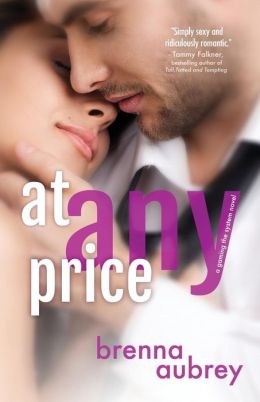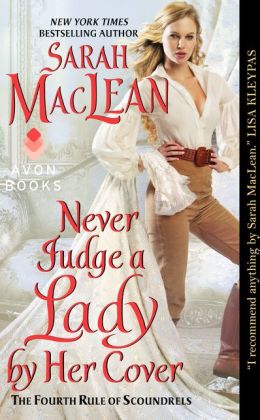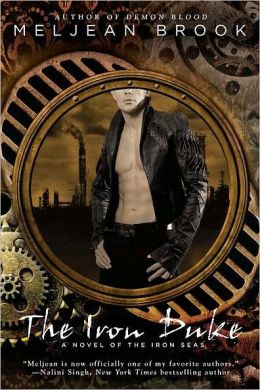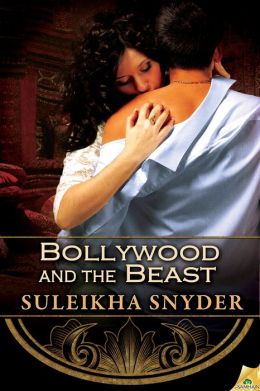Forget what you think you know about romance novels, those beloved but often maligned paperbacks where true love triumphs and clothes come off. Ever since the bodice rippers exploded on the scene in the 1970’s, the romance novel has been known for domineering heroes, simpering heroines, and Fabio. But a funny thing has happened in the past four decades: the genre has evolved to reflect the world we live in and tropes have been updated or new ones replaced old the ones (but Fabio’s successors still haven’t put shirts on, thank goodness).
The romance genre is huge—over 9,000 romance novels were published in 2013 alone, according to Romance Writers of America. Any attempt to make generalizations about the whole genre will be inconclusive, and there are many, many, many romance tropes. Here are just a few of the smart tropes you’ll find in these sexy books:
Geek Girls rule: the super smart heroine

In Susan Elizabeth Phillips’ novel Nobody’s Baby But Mine, Dr. Jane Darlington is a genius physics professor trying to conceive a baby with “dumb” football player Cal Bonner. For her, being smart feels like a curse—but by the end of the book she realizes she doesn’t have to choose between love and being her true, smart self. There is a long list of smart, savvy heroines in romance novels who get the guy without disguising their intelligence. There’s Minerva Highwood in Tessa Dare’s novel, A Week to be Wicked, who embarks on a sexy road trip with a hunky rogue to present her scientific paper to the Royal Geological Society; There’s Violet Waterford, a scientist, in Courtney Milan’s book The Countess Conspiracy. Megan Mulry’s heroine in Roulette is a tenure track professor who speaks multiple languages and ends up running an international business and the heroine of At Any Price by Brenna Aubrey is a proud “geek-girl gamer.”
Not your grandmother’s historical: historical inaccuracy FTW

Sad but true: historical times weren’t great for women (um, not being able to vote, own property, or have custody over their own children). So inevitably, romance novels written to accurately portray a certain historical time period will probably feature men with power and heroines with just some spunk. (Sounds so dirty!) But these days, historical romance writers are finding smart ways to play with historical conventions, and they’re writing characters and relationships that appeal to a modern reader’s values and sensibilities while still remaining true to the time period. There’s Sarah MacLean’s scandalously single mother in Never Judge A Lady By Her Cover, nearly anything by Loretta Chase (I’m fond of Mr. Impossible), or my own Writing Girls series which focuses on women who write for a newspaper in Regency England. These aren’t delusional, lazy, or “wallpaper” historicals: the writers research and know the rules—which is how they know how to subvert them.
Now comes standard: the feminist hero
He may be a Regency duke, a Vampire lord, a billionaire, or a firefighter. But no matter what his trope or time period, or whether he would even use the word feminist, the heroes of the modern romance have fundamentally feminist attitudes about women and relationships. These heroes aren’t
taken aback by a literate, educated woman. Her degrees and high-powered job don’t intimidate him, and there’s no expectation that she’ll give up her career (or whatever she’s passionate about) after they get together. He may still leave his socks on the floor, but he doesn’t expect her to pick them up. To the hero, she’s more than just a housekeeper or baby machine—she’s a partner in life and pleasure.
In the historical realm, Sara Ramsey’s Heiress Without A Cause features a duke who helps the heroine realize her scandalous dream of performing onstage. In J.R. Ward’s Black Dagger Brotherhood book, Lover Revealed, Butch, the hero, helps Marissa, the heroine, realize she has so much to offer the world and encourages her to literally and figuratively wear pants. Or in Meljean Brooks’ The Iron Duke, it’s a non-issue that the expert inspector is a woman and it’s her strength and smarts that the hero finds appealing (among other things). See also: all books by Julie James, because she writes wickedly smart and accomplished heroines and heroes who are totally turned on by it.
Old trope, new look
As early as 1803, Jane Austen was poking fun at conventional expectations for the romance: “No one who had ever seen Catherine Moreland in her infancy would have supposed her born to be a heroine,” she writes in the opening lines of Northanger Abbey. Hundreds of years later, Julia Quinn lovingly teases over the top sensation novels with the parody Miss Butterworth and the Mad Baron, which is read by the characters of It’s in His Kiss.
The romance community has always been aware of the popular tropes and common plots of their genre and have had fun with them. These books are written with a loving wink. Romance writers have continually taken age-old tropes and plots and reinvented them for a new age. There’s Eloisa James’ entire series of reimagined fairy tales (I love The Ugly Duchess), Suleikha Snyder’s Bollywood and the Beast, or Alisha Rai’s reinterpretation of a classic Greek myth in Hot as Hades.
—
In the romance community, there’s a very fine line between reader and writer, with many fans picking up their pens and writing the story they want to read. Don’t like a heroine who is Too Stupid To Live? You can write a geek girl of your own. Don’t like all those promiscuous rakes? Write a virgin hero. Want to update a favorite trope? Go for it. There is something for everyone in romancelandia.
What are your favorite romance novel tropes?
Maya Rodale began reading romance novels in college at her mother’s insistence. She is now the bestselling and award winning author of numerous smart and sassy romance novels. A champion of the genre and its readers, she is also the author of the non-fiction book Dangerous Books For Girls: The Bad Reputation Of Romance Novels Explained and a co-founder of Lady Jane’s Salon, a national reading series devoted to romantic fiction. Maya lives in New York City with her darling dog and a rogue of her own.
—Please make note of The Mary Sue’s general comment policy.—
Do you follow The Mary Sue on Twitter, Facebook, Tumblr, Pinterest, & Google +?











Published: Jun 15, 2015 08:00 pm